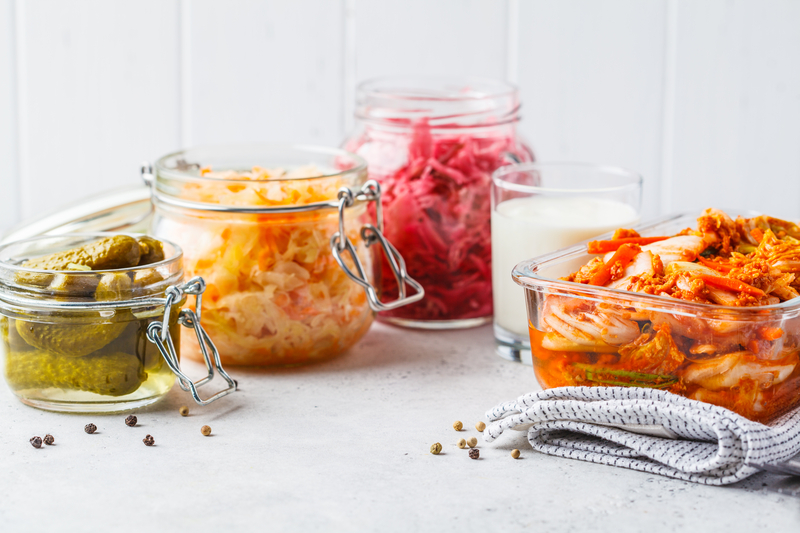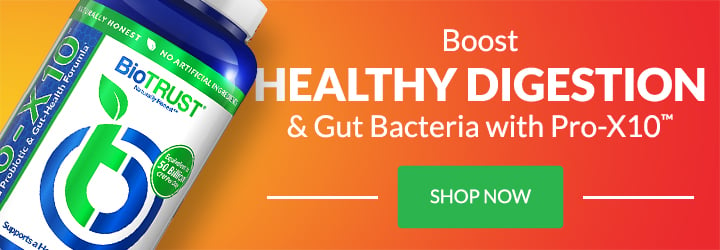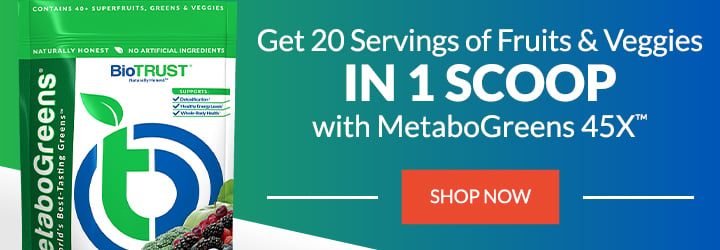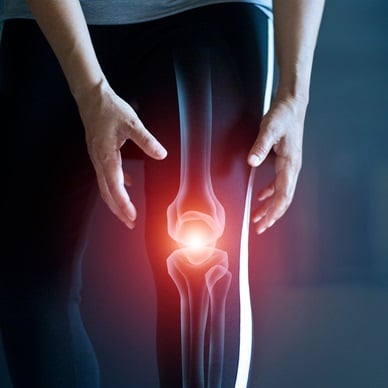Digestive Enzymes vs. Probiotics: Which Is Better?

Because both digestive enzymes and probiotics affect gut health and digestion, it’s easy to confuse them. Both digestive enzymes and probiotics affect digestion and get a lot of attention. Yet they also work in very different ways.
To start, probiotics are live organisms that make up the positive microbiome in the gut. That’s how they help keep the digestive tract in good health. Dietary enzymes are proteins needed by the body for healthy digestion in a different way. These enzymes help break down and digest food components into smaller particles.
Both are important for gut health and health in general. Yet when looking at digestive enzymes vs. probiotics, the first step is knowing your symptoms and what you’re addressing. Which one is best for you depends on what your body is responding to.
Let’s look at the differences between digestive enzymes and probiotics to help you determine which one is right for you.
Digestive Enzymes vs. Probiotics: How They Compare
The reason digestive enzymes and probiotics are likely to be confused is because they do have similarities. For example, they both support gastro-intestinal (GI) health and good digestion. They’re found in a variety of foods and also can be found as supplements. That’s about it for how they’re alike.
How are they different? As mentioned above, probiotics are live organisms that can be found in foods, supplements, and within a healthy gut. These bacteria, yeast, and even fungi act as little helpers for gut harmony within that volatile ecosystem. For a healthy gut environment, you need the good organisms to outnumber the bad, which are different types of bacteria, yeast, and potentially parasites.
Digestive enzymes, on the other hand, are made up of proteins that help break down food in the GI tract, so the nutrients in the food can be digested, absorbed, and put to proper use in the body.
Digestive Enzymes vs. Probiotics: Benefits
Probiotics Benefits
While the biggest perk of probiotics is improved gut health, it goes way beyond the gut. For instance, probiotics are needed to:
- Increase digestive comfort and promote regularity 1
- Enhance skin health from acne to aging to rosacea 2
- Help regulate immunity 2, 3
- Support a healthy weight 4
- Produce short-chain fatty acids within the gut 5
- Promote the health of the gut lining 5
- Support a healthy inflammatory response 6
- Help regulate mood 7
Digestive Enzymes Benefits
There are three main digestive enzymes that help keep the gut functioning well. These include:
- Amylase, which breaks down carbohydrates into simple sugars via saliva
- Protease, which breaks down proteins into individual amino acids and is found in the stomach
- Lipase, which helps break down fats into fatty acids; it’s produced in the pancreas and sent into the small intestine to do its work.
Other common enzymes include lactase (to break down lactose in dairy) and sucrase (which breaks down sucrose in sugars).
These enzymes are essential for breaking down, extracting, and absorbing the nutrients we get from food. If the body is low in any enzyme (e.g., if the body doesn’t produce enough), discomfort or decreased absorption can result. This discomfort can include gas, bloating, burping, constipation, slowed digestion, and potentially the breakdown of the intestinal barrier (or leaky gut), which can increase inflammation. 8
In addition, digestive enzymes have been found to help decrease food intolerances, though they aren’t effective against full-on food allergies. For example, people with lactose intolerances may benefit from taking digestive enzymes to help their bodies break down the proteins in dairy products. 8 Another digestive enzyme called AN-PEP is being studied for its effects on gluten sensitivity. 9
Digestive Enzymes vs. Probiotics: Which Do You Need?
Now that you know the benefits of digestive enzymes vs. probiotics, which one do you need? Or, does your gut need both?
Some indications that you may need probiotics include:
- Feeling gassy or bloated
- Heartburn
- Not going to the bathroom enough or going too much (irregularity)
- Diarrhea
- Skin issues, like acne, rashes, and allergies
- Rundown immune system or autoimmune issues
- Trouble concentrating
- Joint aches
- Fatigue
- Bad breath
- Yeast infections
- Fungal infections (e.g., athlete’s foot or jock itch)
- Mood swings, anxiety, depression, or irritability.
For people who aren’t producing enough digestive enzymes, some indications include:
- Gas and bloating
- Burping
- Feeling full or “heavy,” especially after meals
- Indigestion or heartburn
- Stomach cramping after eating
- Nausea
- Lack of bowel movements
- Oily stools
- Food intolerances or sensitivities (e.g., lactose intolerance)
- Skin rashes or increased acne or eczema flareups
- Unexplained weight loss
- Headaches
- Brain fog
- And mood swings.
As we age, it can also become harder to produce enough digestive enzymes, which can lead to low appetite, digestive complains, and intestinal permeability (aka leaky gut).
If you have multiple symptoms, you may need both digestive enzymes and probiotics, and it is possible—even encouraged—to get more of both. There are food sources as well as supplements you can add to your routine, but it’s always a good idea to check with your health practitioner first.
Food Sources of Enzymes vs. Probiotics
Food Sources of Digestive Enzymes
If your body isn’t producing enough digestive enzymes, you can’t properly digest food. Fortunately, many foods provide natural enzymes to help you better digest the foods you eat. These include:
- Pineapple, which provides the protease bromelain to help break down protein 10
- Papayas, which provide another group of proteases called papain 11
- Mango, especially when fully ripe, provides amylase to help break down complex carbs into simple sugars 12
- Honey, especially raw honey, contains several digestive enzymes, including diastases, amylases, invertase, and proteases 13
- Bananas, which contain both amylase and glucosidases, both of which break down complex carbs into more easily absorbed sugars 14
- Avocados, which provide lipase to help digest fat 15
- Kiwifruit provides a protease enzyme called actinidin, which helps with the digestion of protein 16, 17
- Ginger has numerous positive benefits, often attributed to the protease enzyme zingibain, which can help move food through the digestive tract more efficiently. 18 – 20
Certain raw foods, such as some vegetables, fruits, and milk, also contain natural enzymes that help break them down. Heat, however, can destroy the enzymes naturally found in foods, so if your diet is mostly made up of cooked, pasteurized, or processed foods, you may not be getting the enzymes found in these foods, so your body must produce them (in the pancreas). Eating bitter foods like arugula, kale, dill, turmeric, and coffee, however, may also help activate digestive enzymes.
Food Sources of Probiotics
There are well-known foods that provide probiotics. In addition to those in the list above, you may benefit from eating more:
- Yogurt is one of the best sources of probiotics like lactic acid and Bifidobacteria. 32
- Buttermilk describes a range of fermented dairy. However, only traditional buttermilk, which is the leftover liquid in butter-making, provides probiotics. It’s rarely found in the U.S. The cultured buttermilk found in most grocery stores is, unfortunately, not rich in probiotics.
- Tempah, a high-protein meat alternative, is another fermented food that provides gut-healthy probiotics.
- Natto is another fermented soybean option that offers Bacillus subtilis. It’s also high in protein, nutrients, and lots of flavor.
- Kombucha, which is made from fermented black or green tea, is another way to provide your body with friendly bacteria.
- Pickled foods, including pickles, pickled beets, pickled beans, and more, ferment in their own lactic acid, creating another beneficial probiotic. Do, however, note that pickles made with vinegar are not probiotic-rich foods. Instead, look for foods that naturally ferment in a salt and water solution.
- Finally, some types of cheese are also rich in probiotics. For example, gouda, mozzarella, cheddar, and cottage cheese are good sources, as long as they have “live cultures” or “active cultures” listed on their labels. 33, 34
Food Sources of Both Probiotics and Digestive Enzymes
There are several foods that offer digestive enzymes and probiotics, providing a wider range of benefits. These include:
- Kefir, which is well-known for its probiotic benefits, yet it also is a good source of the digestive enzymes lipase, proteases, and lactase. 21 – 24
- Sauerkraut is also a good source of both probiotics and digestive enzymes for a healthy boost to digestion and immunity. 25, 26
- Kimchi, a spicy fermented vegetable dish that originated in Korea, is another fermented food that provides a wealth of benefits due to nutrients and enzymes like proteases, lipases, and amylase, and probiotics. 27 – 29
- Miso, the popular Japanese ingredient made from fermented soybeans, a type of fungus called koji, and salt, is another food that’s rich in digestive enzymes like lactases, lipases, proteases, and amylases, along with healthy probiotics. 30, 31
Supplementing Digestive Enzymes vs. Probiotics
With so many people seeking to improve their digestive health, probiotics and digestive enzymes have become popular supplements. Of course, a healthy, whole-food diet is the foundation for a healthy gut, but supplements may also be able to help.
For example, a quality broad-spectrum digestive enzyme blend such as BioTrust’s AbsorbMax™, which has been designed to provide digestive support for folks who experience occasional indigestion and discomfort. Along with providing proteases, amylases, and lipases, AbsorbMax also includes cellulases to help your body properly digest even the most stubborn carbs, fibers, fats, and proteins.
Probiotic supplements are also very popular, yet not all are created equal. It’s important to find products that deliver live probiotics. BioTrust’s Pro-X10™, for example, combines probiotics with prebiotics that are then encapsulated to ensure delivery of the live Bacillus subtilis and PreforPro®.
Perhaps the best way to ensure your body gets enough probiotics and digestive enzymes is to ensure you eat a wide variety of natural, whole, healthy foods like colorful vegetables, quality proteins, and healthy fats. And if your system does get a little off and you experience some of the digestive complaints listed above, there are many foods and some quality supplements that may help you get back on track more quickly.






 US Doctor: "Eating This Every Day Can Snap You Into Ketosis"
US Doctor: "Eating This Every Day Can Snap You Into Ketosis" 3 Key Nutrients to Help Lubricate Your "Tin Man" Joints
3 Key Nutrients to Help Lubricate Your "Tin Man" Joints AVOID Plant-Based Protein Powders (unless...)
AVOID Plant-Based Protein Powders (unless...)

